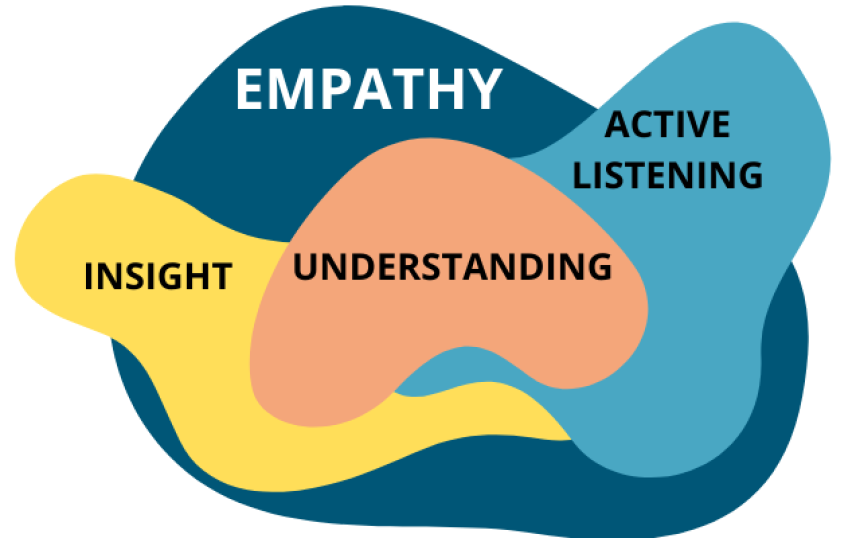
Hashtags
2 years ago
Hashtags
#what-is-this
What is Empathy?
Empathy is the ability to understand and share the feelings, experiences, and perspectives of another person. It involves the capacity to emotionally resonate with someone else, recognizing and acknowledging their emotions without necessarily experiencing them directly.
Here are some key points about empathy:
- Understanding and Perspective-Taking: Empathy involves the capacity to put oneself in another person's shoes and see the world from their point of view. This requires a genuine effort to understand their feelings and experiences.
- Emotional Connection: Empathy is an emotional response. It allows individuals to connect with others on an emotional level, showing that they care and are attuned to their feelings.
- Different from Sympathy: While sympathy involves feeling compassion or pity for someone's situation, empathy goes a step further by trying to truly understand and share in the other person's emotional experience.
- Cognitive and Affective Empathy: Cognitive empathy involves understanding another person's perspective and emotions. Affective empathy involves actually feeling the emotions the other person is experiencing.
- Helps Build Relationships: Empathy is a crucial component of healthy, supportive relationships. It fosters trust, understanding, and mutual respect.
- Promotes Altruism and Kindness: Empathy often leads to pro-social behaviors, such as helping, supporting, and being there for others in times of need.
- Reduces Prejudice and Discrimination: When people are able to empathize with those who are different from them, it can lead to greater acceptance, reduced prejudice, and more inclusive attitudes.
- Can be Cultivated and Developed: Empathy is a skill that can be cultivated and strengthened through practices such as active listening, perspective-taking, and mindfulness.
- Empathy Fatigue: In situations where individuals are constantly exposed to the suffering or emotional distress of others, they may experience empathy fatigue or burnout. This can happen in professions like healthcare, counseling, or social work.
- Cultural and Individual Differences: The expression and interpretation of empathy can vary across cultures, and individuals may have different levels of natural empathic ability.
Empathy is a fundamental aspect of human connection and is crucial for healthy social interactions, understanding, and support. It plays a vital role in building compassionate and inclusive communities. Practicing empathy allows individuals to form deeper and more meaningful relationships with others.





